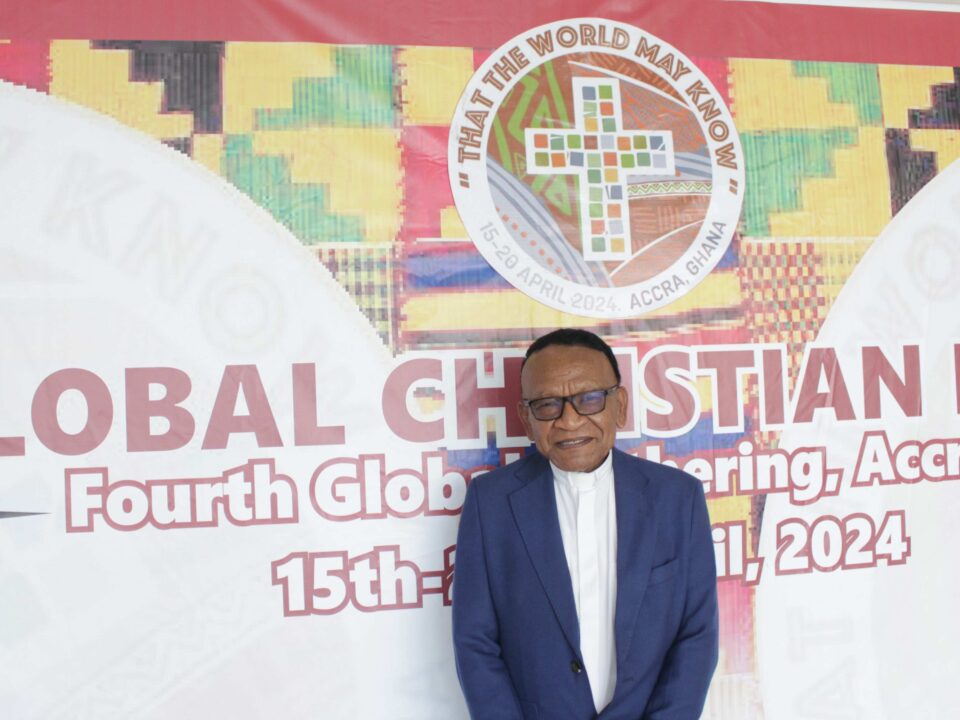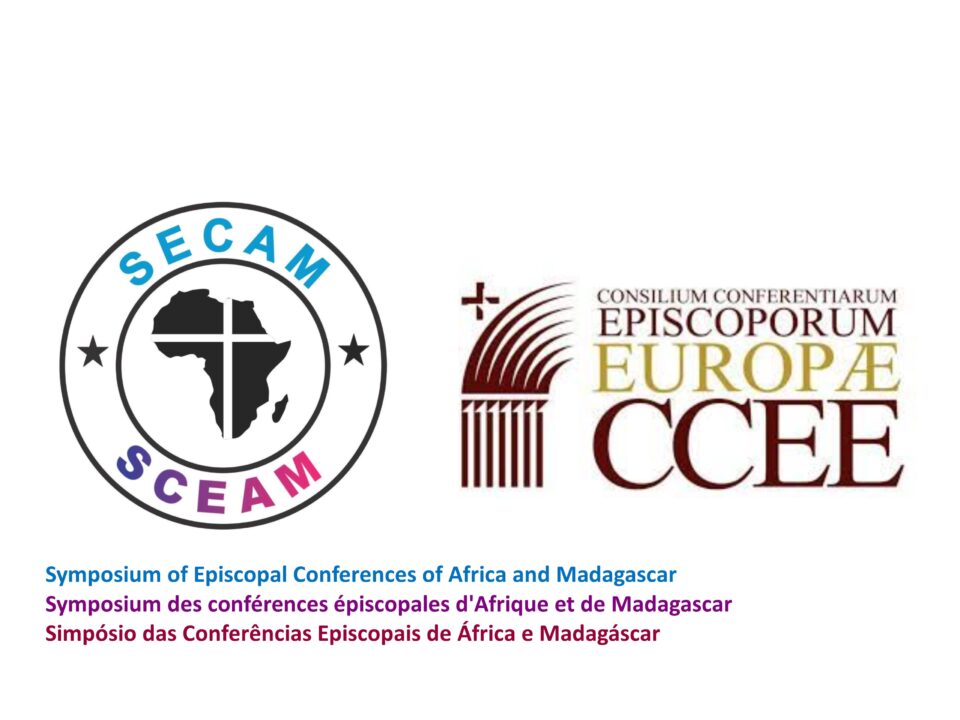- Contact us on - Contactez-nous sur - Contacte-nos em
- +233-30-277-8867/8
- +233-30-277-2548
- secam@secam.org
Recommendations on Family (17th SECAM Plenary)
Recommendations
Having strong hope in the future of families – a hope based on the Lord’s love, we make the following recommendations:
1. Restructuring the pastoral care of the family. In the various Episcopal conferences, there exist various types pastoral approaches in favor of family. We ask to harmonize and restructure them by providing human and material resources needed for a better accomplishment of their mission. To achieve this, it is necessary to create and support the function of family committees within SECAM as well as in different National and Regional Episcopal Conferences.
2. Ensuring better marriage preparation. Such preparation should be done in several phases: remote preparation in the family, youth movements, in the university chaplaincies; Immediate preparation in view of engagement. It must be ensured jointly by a team of family members, priests and the laity who are involved in the pastoral care of the family. We ask priests to seriously pay particular attention to the preparation of marriage
3. Accompanying couples. The celebration of marriage is not only the summit of the process but equally a vocation of accompanying couples in the Church. Hence the importance of structures that valorize sharing and mutual support among married couples as well as enhancing the pastoral role of witnesses to the marriage. It is important to pay particular attention to young couples particularly those in mixte marriages, disparity of cult and in difficult situations.
4. Educating to love. Given the contemporary context marked by selfishness, utilitarianism and hedonism, special emphasis should be on love, agape, that is self-giving and gratuitous love, characterized by sacrifice, forgiveness and reconciliation. We need to intensify our support for parents in inculcating family values that build a strong and balanced personality in their children and other family members.
5. Training of pastoral agents. Promoting pastoral structures to support couples requires training of pastoral agents. We propose that where it does not yet exist, a course on marriage and family should be introduced into the seminary curriculum to equip future priests to better fulfill their vocation as the messengers of the Gospel of Family, in the Church Family of God. We exhort Regional Episcopal conferences to establish a formation centre for pastoral care of the family.
6. Formation for families. Family life is not improvisation. Hence the importance of formation for families about human formation, which helps to know oneself and live a harmonious relationship with each other; socio-anthropological formation which also helps to understanding the cultural, social, political and economic environment; Christian formation, for the understanding of biblical, theological and moral sources of our life of faith. Parents often feel helpless as regards the mission of evangelization of families. We ask pastoral agents to offer them the necessary assistance for the realization of true school, the family.
7. Education of children. Parents are the first and principal educators of their children. The family is the first school of values which is indispensable to every society. This education requires the effective physical presence of both parents in the family. It involves affective and sexual education. We encourage parents to educate their children to know and respect their bodies.
8. Making the Youth responsible. Young people will be educated to take care of themselves; to love a job well done; to develop fully their potentialities and be self-confident. In this way they will develop in them a true missionary consciousness which will enable them to become true witnesses to the Christian faith in the face of ideologies which threaten it.
9. Promoting spiritual life in the family. The spiritual life in the family is based on the four pillars as proposed by the Acts of the Apostles (Acts 2: 42-47): Assiduity in listening to God’s word, read and meditated upon in the family and in communion with the Church; regular participation of all members in the Eucharist; prayer that brings together all family members, while maintaining the link with the parish; communion, service, sharing, exchange. We need to make families places where we share together joys and pains.
10. Fighting against discrimination within families. Women, youth, children, the elderly, widows and orphans, persons with disabilities, are oftentimes victims of discrimination and even violence in both the family and society. The pastoral care of the family, with the support of the commission “Justice and Peace” must fight to eradicate such discriminations.
11. Revisit the dowry. Originally conceived as a symbol, the dot today has lost its true meaning and is becoming an obstacle to the commitment of many young people. At times, it devalues the dignity of women as a commodity. We ask the Department of “Faith, Culture and Development” of SECAM, theologians, and academic institutions and Universities to help through research studies into the cultures and mentalities of our people to reinstate the initial symbolic value of dowry.
12. Evangelization of the new ways of social communication. Today, none can ignore the new means of social communication, even if their impact is not always positive. The experts in this field should put the media at the service of pastoral and family cohesion, and to introduce children and young people to regulate their use.
13. Resist the Influence of New Religious Movements. Some religious movements continue to wreak havoc in our churches and in our families, sowing divisions and disarray. The pastoral care of the family must ensure the protection of Catholic Christians through catechetical instructions a strong spiritual life and communion that resist the sirens of these movements.
14. Disabuse our minds of belief in witchcraft. In a context of greater economic, social, health, political or emotional despair, belief in witchcraft that seems to destroy people and family cohesion. These beliefs and accusations are often based on ignorance, misinterpretation of African tradition and a fundamentalist reading of the Bible. Hence, the need for a strong human formation that takes into consideration the psychological biblical and spiritual dimensions of formation.
15. Strengthen solidarity between families. With the economic hardships associated with some major social pandemics, families have become too vulnerable economically. These problems often affect the family cohesion. The pastoral care of the family must promote operational management of available resources, and encourage active solidarity among families. The entire Christian community must be encouraged to be more attentive to this situation.
16. Reflecting on difficult matrimonial situation. A greater number of African families encounter series of challenges among which is the problem of polygamy. This challenge should invite the Church to accompany pastorally the polygamous men and to be witness of the divine mercy of God, while exhorting them to conversion. The pastoral agents should avoid all that could lead to the recognition of such marital union so as to keep intact the Christian ideal of monogamy.
17. Supporting Pro-life and Pro-Family Organizations. Several Organizations and Associations are engaged in the promotion of life and families. It is necessary to support their activities and collaborate with them.
18. A Call upon Governments. Governments invest heavily in the promotion of the family. We appeal to them to implement social policies that respect African Cultural values, justice, fundamental human rights of persons and families. We expect from them a proper management of the common good in favor of the development of families, particularly the most fragile.
19. Denounce the ambiguity of the new world (Order) ethic
About marriage and family, the new world order (or ethics) proposes some orientations which are contrary not only to the African traditions, but to the Word of God and the teaching of the Church. The Christian communities and families should therefore be very much attentive and must always be ready to defend the dignity of the family.
20. Initiate a directory on catechesis of the family. In order to address effectively the major challenges confronting the family, we need to elaborate new pastoral perspectives or approaches; we ask the Episcopal Conferences to develop a directory of family catechesis, essentially biblical catechesis, which will be assessed every three years.




